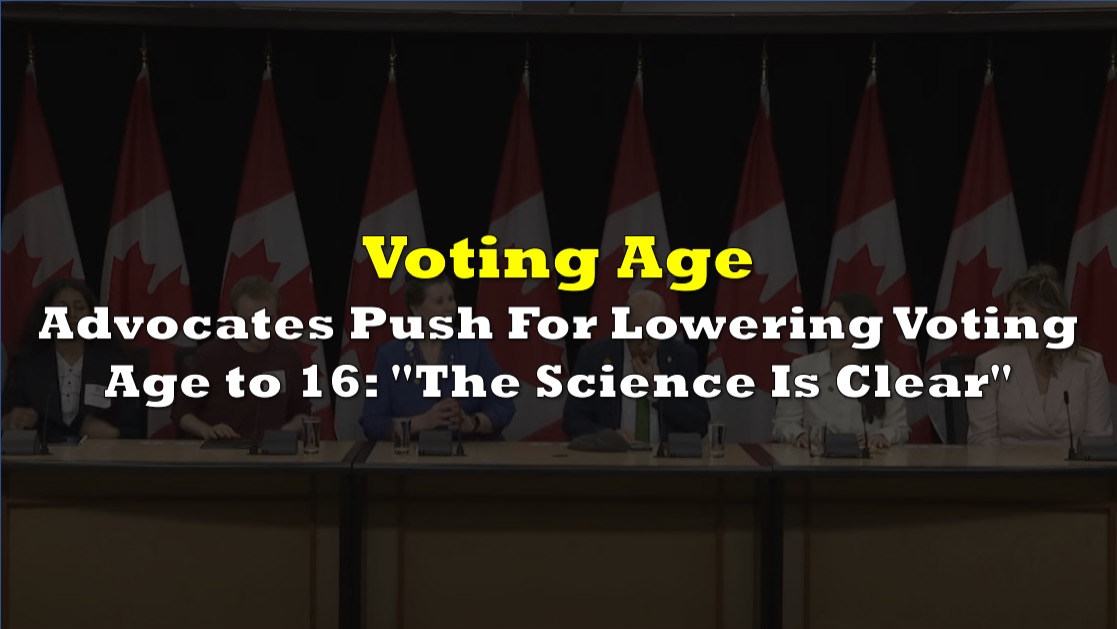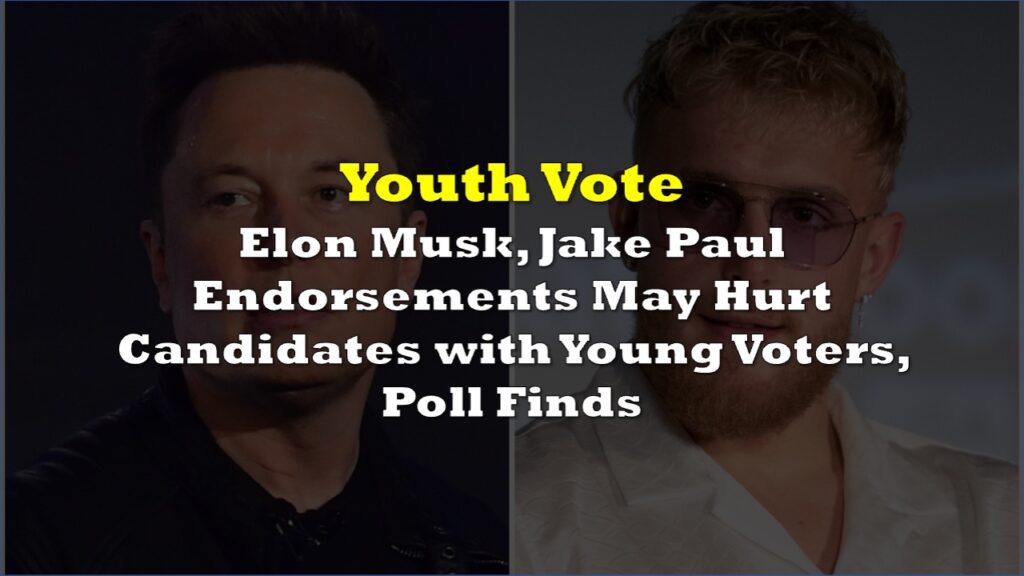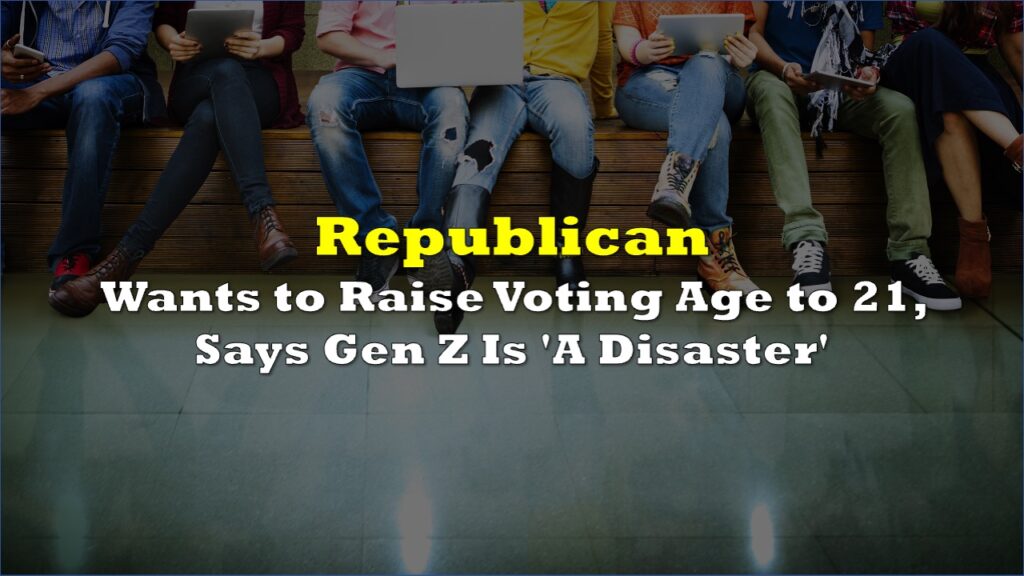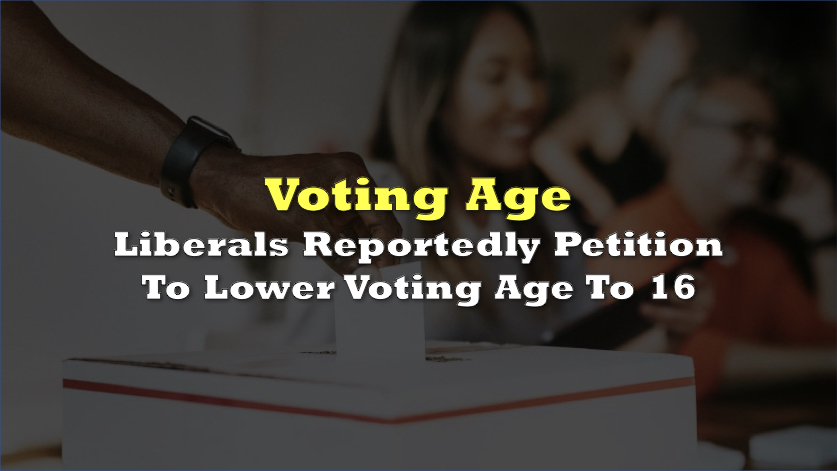The Vote16 Summit was held recently in Parliament Hill in Ottawa as part of a renewed push to lower Canada’s voting age to 16. This event, featuring prominent advocates and parliamentarians, highlighted the growing support for this democratic reform.
Senator Marilou McPhedran, the first senator to introduce a bill to lower the federal voting age, opened the conference by emphasizing the long history and renewed vigor of the campaign.
“Twenty years ago, it was all about opinion and prejudice. Now, we have credible, published academic research from numerous countries showing that nothing bad happens when you lower the voting age to 16. In fact, everything is positive,” she stated.
Green Party MP Mike Morrice echoed McPhedran’s sentiments, underscoring the importance of youth involvement in democracy.
“We see that voter turnout increases when we reduce the voting age. More engagement in our democracy is crucial because it’s young people’s futures that are on the line with the decisions made by parliamentarians,” Morrice said.
Samantha Reusch, Executive Director of Apathy is Boring, explained their arguments for the benefits of lowering the voting age: “The science and research are clear: extending voting rights to 16 and 17-year-olds, allowing them to participate in their first election earlier in life when they are typically more stable, improves the likelihood that they will turn out to vote and participate long-term in our democracy.”
She also stressed the importance of addressing the motivational barriers that prevent young people from voting and the potential of this reform to enhance trust in democratic institutions.
NO WAY 🤯 they’re saying it’s time to LOWER the voting age to 16 – because of SCIENCE 🇨🇦🤯 the agenda is so clear pic.twitter.com/V6tf6kEe60
— Melissa 🇨🇦 (@MelissaLMRogers) May 29, 2024
Jaden Braves, a 15-year-old head of Young Politicians of Canada, passionately advocated for the change, emphasizing the urgency of youth inclusion, saying they “cannot wait until young people become Canada’s next leaders to begin implementing the visions and choices that will impact our generations.”
“I’m worried that young Canadians are not heard, and our voices have been left behind,” Braves added. The group engages young Canadians aged 14 to 24 in politics, arguing for their right to influence decisions that will shape the country’s future.
Spencer Lambert, another member of Young Politicians of Canada, added, “The status quo does not give us space to share our beliefs and change policy.”
McPhedran has a bill before the Senate that may come to a second reading vote in the coming weeks. If passed, it would lower the national voting age to 16.
“Only good things happen to democracy in every country where there has been a lowering of the federal voting age,” McPhedran said. “What we’re talking about is an infusion of energy and vitality into our democracy.”
Countries that have lowered the voting age to 16 include Argentina, Austria, Brazil, Cuba, Ecuador, and Nicaragua. In Canada, the voting age for federal elections was 21 until it was lowered to 18 in 1970.
Support for this change has been evident among NDP, Green, and some Liberal MPs, while the government and Conservatives have previously opposed it. NDP MP Charlie Angus expressed his support, hoping the bill will pass the upper chamber and reach the House of Commons before the next election. He dismissed concerns about teenagers’ maturity, stating, “I’ve been in many high schools where I’ve heard many more intelligent conversations.”
If the change is enacted, it would add two million more names to Canada’s voter list, significantly expanding the electorate.
“We welcome the attention and support for this important cause that will shape the future of our democracy,” McPhedran said.
Information for this briefing was found via CPAC, CityNews, and the sources mentioned. The author has no securities or affiliations related to this organization. Not a recommendation to buy or sell. Always do additional research and consult a professional before purchasing a security. The author holds no licenses.









4 Responses
At least at 18 many are working an d paying taxes.
At least at 18 many are working and paying taxes.
Science DOES NOT SAY that 16 & 17 year olds are not ready for the responsibility of voting. It does say that given the time to think things out and consult adults, it is reasonable to let them vote.
Let science decide the voting age- https://www.newscientist.com/article/mg22429900-200-let-science-decide-the-voting-age/- 8 October 2014
Cold cognition is relevant to matters such as voting, granting informed consent for medical procedures or taking part in a scientific study, and competence to stand trial in court. In these, adolescents can gather evidence, consult advisers (such as parents, physicians or lawyers), and take time before making a decision. Time pressure and peer pressure aren’t usually factors.
I see no reason why a pregnant 16-year-old, given adequate time and the opportunity to discuss the decision with an adult, shouldn’t be able to get an abortion or contraception without her parents’ involvement, or why we shouldn’t let 16-year-olds vote. Indeed, they can vote in Austria, Argentina, Brazil, Ecuador, and Nicaragua.
Lowering the Voting Age to 16 in Practice- https://academic.oup.com/pa/article/74/3/507/6321304?login=false#282896103
PART OF CONCLUSION- Work over the past decade has provided relevant insights about what happens when 16- and 17-year-olds are allowed to vote. Overall, the picture appears to be rather positive and bringing together research from different countries has enabled us to identify some overall patterns. However, to understand more deeply what structural factors may affect how precisely earlier enfranchisement interacts with political behaviour and attitudes will require further work of the comparative nature outlined above. That work would enable us to gain insights relevant beyond the topic of lowering the voting age itself and useful to scholars interested in youth political engagement, socialisation and education more widely.
This is nothing more but to get imppressionable youth to vote for them. Science clearly says that the average brain is not fully developed to make rationale decision until in their twenties. Funny they list the countries that have changed to 16 that are having huge problems.